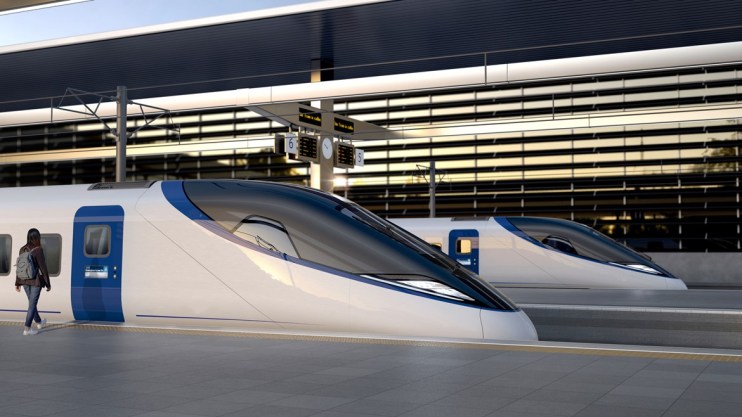HS2 boss admits London to Birmingham line could actually cost £66bn

The costs of the HS2 line from London to Birmingham could be as much as £66bn, according to the scheme’s executive chair, Jon Thompson.
Thompson told the transport select committee on Wednesday that despite the current estimate being upwards of £56.6bn, the first phase of the high-speed rail project could add “between £8bn to £12bn,” suggesting the current prices are outdated.
Estimates have continued to rise over the past decade, with the forecast being just £19.4bn in 2013, according to reports in the Guardian.
However, the outlet reported that the latest change comes because the current £56.6bn forecast represents 2019 prices, neglecting the jump in inflation that followed the pandemic and Russia’s invasion of Ukraine.
Thompson told MPs: “If you brought the estimate for 2019 prices up to 2023-24 prices, you’d be adding somewhere between £8bn and £10bn further. Construction inflation over the last three years has been 27 per cent … steel has risen by 47 per cent, rebar 53 per cent, concrete 48 per cent, and so on.”
Recent cost concerns were cited in October, when Rishi Sunak announced he would be sacking plans for the HS2 line north of Birmingham.
Current government policies only update prices for large infrastructure projects during spending reviews, the outlet said, meaning the costs for HS2 phase one is still tied to September 2019.
Criticising the process, the outlet said Thompson referred to the “burden” as a “significant administrative faff”.
Louise Haigh MP, Labour’s shadow transport secretary, placed the blame on Rishi Sunak’s “weak leadership and mismanagement of HS2.”
“As chief secretary, Chancellor and now PM Rishi Sunak has allowed costs to soar and public money go down the drain.
She said Labour “launched an independent expert review of transport infrastructure to learn lessons from this shambles, and we will work with our mayors and the rail industry to develop a credible infrastructure plan that can be delivered on time and to budget within our fiscal rules.”